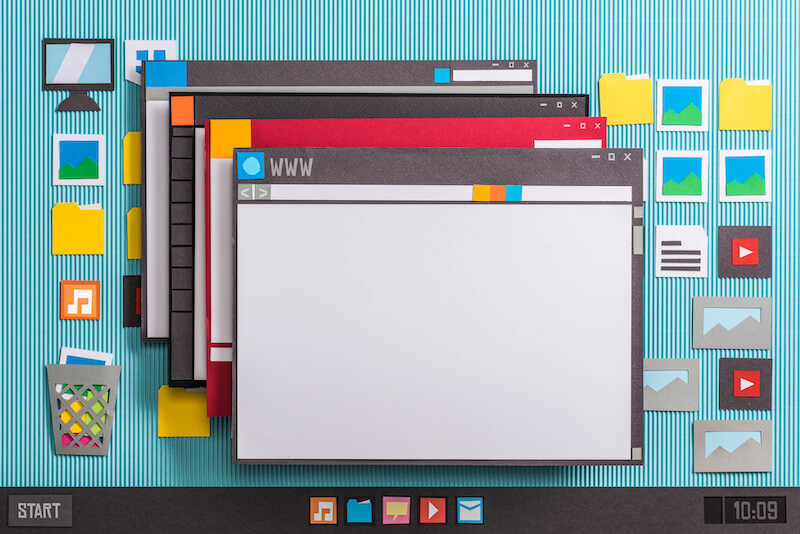
How to Learn Faster and Remember Much More
Table of Contents
If, after studying for hours, you still forget important information, this does not mean that you have a weak memory. According to cognitive science, our brains are hardwired to forget. Memory is not a simple recording device; instead, the brain selectively encodes and stores data it considers relevant or emotional, discarding the rest. Unless learning is reinforced and retrieved regularly, neural connections fade.
The best news is that evidence-based methods can help you learn faster and remember more without sacrificing long-term retention. By changing your study habits to fit the way the brain naturally processes and stores information, you can transform your learning process.
Why Are We Bad at Remembering?
Recollection of obtained facts, details, definitions and other types of content requires excellent memory and mental agility. Unfortunately, forgetting and remembering come hand-in-hand. But luckily, it’s a mutually exclusive concept. By discovering ways to improve memory, you can easily fight any signs of abnormal forgetfulness and other troubles with memory. One of the reasons we might be bad at remembering is a million distractions. Thus, during performing tasks that require memory, attention, and dynamic thinking, it is advisable to eliminate any type of distractions that prevent you from giving full attention. If studying in a noisy environment, your memory will be quite selective, so you won’t be capable of grabbing the necessary amount of data, and memory lapses will appear.
Another trigger for bad remembering can be our inability to make information associations. Creating connections between different pieces of information makes it easy to learn and encode. Association is a great and sometimes even fun memory and learning aid. You can connect together completely unrelated ideas or objects. For example, when trying to memorize the periodic table, you can connect elements, their atomic numbers, and symbols with something you know very well. It can be almost anything (names of favorite songs, colors, fruits, etc.) with which you can make vivid associations. Thus, you can create a system of such connections and recall them during exams or whenever you need them.
Learn More about Enhancing Memory
There is a complicated interaction between neurons and molecules going on in your memory. When you learn anything new, your brain cells (neurons) talk to each other via synapses, which are little gaps where neurotransmitters like glutamate and dopamine are released. These substances make the connection between two neurons stronger, which is called long-term potentiation (LTP). LTP is very crucial for making memories that endure.
Training memory via sustained attention and learning with recall not only makes you better at things; it also changes the way your brain works, increases the density of gray matter, and makes it easier for different regions to communicate with each other.
Top Ten Proven Ways to Learn Faster and Boost Your Memory
Whether you’re a student preparing for exams or an adult seeking new skills, your learning plan can make all the difference. Here are ten science-based strategies to learn faster and remember more based on how the brain really works.
-
Create a Distraction-Free Study Area
Your environment is more significant than you think. The prefrontal cortex, your brain’s center of attention and decision-making, is highly prone to distraction. Messages, noise, and disorganization all compete for mental energy. To stay in a state of high concentration, also known as flow, eliminate distractions: silence devices, clear off your space, and utilize noise-cancelling headsets if needed.
Five minutes of lost focus can ruin your memory consolidation process.
-
Set Clear Learning Goals Before You Study
Clarity leads to efficiency. The brain works better at filtering and memorizing valuable information when it knows what to anticipate. Before you start studying, write out what you want to learn, whether it’s a new concept, a certain number of problems, or a new way to do anything. This is the principle of creating goals, and it gets your working memory ready to look for helpful patterns.
Having specific, measurable goals also helps you stay focused and motivated.
-
Study using the Pomodoro Method
The Pomodoro technique for studying is a way to organize your time that helps you stay mentally strong. It consists of 25 minutes of focused work followed by 5 minutes of rest. This method helps alleviate brain overload.
-
Practice Active Recall (Testing Effect)
Instead of passively re-reading notes, challenge yourself to retrieve what you’ve learned. This is known as active recall, or the testing effect. Research in educational psychology consistently confirms that testing yourself strengthens memory pathways and improves long-term retention.
Employ flashcards, or when preparing for an exam, simply put your book away and write down what you can recall. The more difficult it is to remember something, the stronger your memory will be.
-
Employ Spaced Repetition to Conquer Forgetting
The spaced repetition method is an evidence-based way of learning that involves reviewing material at increasingly larger intervals. It supplements Ebbinghaus’ forgetting curve by re-stimulating memory traces before they extinguish.
If you’re serious about how to retain information better, this technique is essential.
-
Use the Method of Loci (Memory Palace Technique)
The memory palace technique, Method of Loci, goes back to Greek oratory. It employs spatial memory, the part of your brain that remembers places, to organize and peg information in visual form.
Imagine your home, and in your mind, place facts in different rooms, linking them to objects. You then move through that home in your mind to remember them. Neuroscience studies show this strategy activates various parts of the brain, both strengthening memory and imagination.

-
Chunk Information Into Meaningful Groups
Your short-term memory has its limit. Chunking prevents the bottleneck by dividing information into meaningful groups. For instance, remembering a telephone number as “555–123–6789” instead of ten individual digits is one such example. Receiving new information, you can place it into frameworks. Use it when memorizing words, formulas, or dates.
-
Link New Material to What You Already Know (Elaborative Encoding)
Your brain is most ready to learn through association. By connecting new information to something you already know, you’re practicing the method of elaborative encoding, and deep processing is ensured.
Let’s say you’re learning about photosynthesis. If you already have knowledge about cellular respiration, compare the two processes head-to-head. This “hooking” procedure solidifies your neural networks so that recall will be simpler and less strenuous.
If you’re worried about how to improve your memory for studying, start by connecting new material to something you already know.
-
Breaks and Rest
Brain functioning is not a steady process. It increases and decreases depending on exhaustion, vitality levels, and circadian rhythm. Functioning without interruptions leads to mental fatigue and poor recall. Smart breaks, such as a short walk, stretching, or deep breathing, can reset your thought resources.
Most importantly, don’t skip sleep. Memory consolidation occurs during deep sleep. During the night, the hippocampus replays new memories to the neocortex and stores them in long-term memory.
-
Teach Someone Else or Talk Out Loud
Explain an idea in your own words. This is how you’re synthesizing and simplifying it—two powerful mental processes. Teaching exposes knowledge gaps and triggers more intense memory consolidation.
Even when no one is listening, read the stuff out loud to yourself.
Do this a lot, especially when summarising important information or preparing for oral exams.

Conclusion
Using focused techniques like the memory palace technique and the spaced repetition technique makes anyone learn quicker and retain more. These habits can be the most life-changing ones to include in your daily routine. Over time, these disciplines sharpen attention; they shorten the required study hours and increase mental clarity.
If you’re dedicated to academic achievement, professional development, or just staying sharp, these memory enhancement methods are vital. They’re great cognitive exercises for memory, adaptable to any learning goal.
By making a habit of applying these methods, you will find out how to learn faster without gaps in memory.
FAQ
How do I teach myself to learn?
Teaching yourself to learn effectively involves adopting specific mind-boosting strategies that nurture curiosity and foster creativity. By breaking down complex topics into manageable parts, asking questions, and seeking real-world applications, you engage your brain actively. Setting clear goals, practicing regularly, and reflecting on what you’ve learned help deepen understanding. Moreover, cultivating a positive mindset and embracing challenges as opportunities for growth transform the learning process into a rewarding experience.
How can I learn 10x faster?
Learning dramatically faster is achievable by applying proven techniques like active recall, spaced repetition, and focused practice. You don’t need to be a genius — consistency and the right strategies matter most. Using tools such as mind maps or mnemonic devices enhances memory retention. Eliminating distractions, managing time efficiently, and maintaining a healthy lifestyle support cognitive function. Most importantly, cultivating patience and persistence allows you to build habits that boost learning speed over time.
What is the word for easy to learn?
The phrase “easy to learn” refers to knowledge or skills that can be acquired with minimal effort and difficulty. It implies that the material is intuitive, straightforward, and accessible to most learners. This can result from clear explanations, logical structure, and engaging presentation. Learning something “easy” reduces frustration, builds confidence, and encourages continued exploration and mastery.